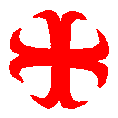A Musing
There are many elements that distinguish Jung and his work. One of the most powerful forces in Jung's life was the impetus to re-create himself, again and again, old ideas constantly being reworked or replaced with the fecund muse of the moment. This force asserted itself in his life at the risk of death more than once, both physical and symbolic. Jung was a scientist, yes. A mystic, definitely. (I have never thought that a pejorative term in relation to his work.) And, an artist. He was an artist not because he painted or worked with stone, but because he was willing to risk death - rejection, ridicule, disenfranchisement, banishment, and loss of life - to find the truth of his life as the Muse wanted it to be lived.
My friend, Antero, wrote again (catalyzing this writing). He says:
An artist recreates him/herself over lifelong organic processes of molting his/her forms and creations -- the opus -- towards a state of perpetual emergence. As we know, the artist remains on intimate terms with The Fertile Void and when the incumbent pressures of his/her humanity swell forth, the artist ripens to blossom onto the canvas, the blank page, the empty stage, the silver screen. The true artist knows life itself as the alchemical prima materia and will, at the drop of a hat, change his/her life to best serve Creation...while asking her/himself over and over and over again:
Just what kind of life might the Muses find most appealing?
Jung didn't want to have his work institutionalized, at least not in the beginning. I don't really know what changed his mind, but I doubt he was ever completely enthusiastic about codifying something that grew out of his particular relationship with the Muse.
Indeed, how can one write the procedure manual, complete with regulations and by-laws, that tells us how to wrestle with the Angel when we meet him on the road to the Unknown?

3 Comments:
Wonder if we had the 'integral consciousness' to receive the procedures manual, the regulations, and the by-laws as simply a 'magical circle' rather than as a fortress replete with moat and alligators? Wonder if we experienced this 'magical circle' as a site of formation, gestation and causations? Wonder if we, like the artist Paul Klee, could "begin more and more to see behind or, better, through things". Wonder if we learned to fight for something rather than forever fighting against something? Wonder if we let our hearts come to clarity about what it is each of us is fighting for? Wonder if this heart held clarity were both the means and the sign of the intensification of consciousness? Wonder if we could believe, as the poet Rilke wrote, "our wishes are the memories coming from the future"? Wonder if we could accept that this future we dream of, wish for, blog about, fight about, create toward, is the co-creator of the present? Wonder if Jean Gebser is right and "we do not have a soul as much as a soul has us". Wonder...
Oops... the quotation about 'a soul having us' at the end of my last comment was from Antero Alli and not Jean Gebser. I checked out your friend's website and I was deeply moved. I have ordered his book! I also have been reading Gebser so in some place, they meet. My apologies to Antero Alli, though methinks he might like the misquote.
Wisdom is wisdom! :o)
Thanks for correction. And you'll love his book.
Post a Comment
<< Home